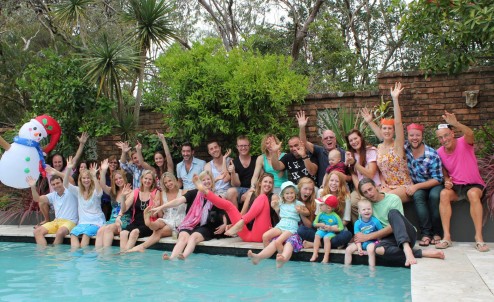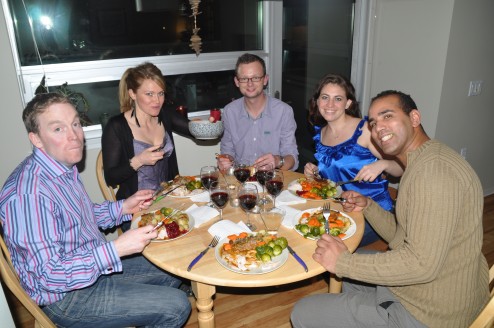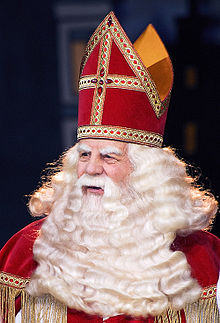It’s lovely to be in Sydney for a Christmas with family and friends, BBQs, beaches, drinks by the pool, secret Santas, Sydney-to-Hobart boat watching, and (blow up) snowmen.
This year is the polar opposite (literally and metaphorically) from my Christmas in Vancouver last year, which I spent rugged up outdoor ice skating, eating, dancing and playing limbo with my bestie and a few of her French and Canadian friends.
It’s interesting to think about the role of ritual in our lives. Those things that we do intentionally or not, as an expression of our culture or religion, our family, our being. Often we don’t stop to ask why we do it. I thought I’d take a moment to wiki the why…
Why do we celebrate on the 25th of December?
The 25th of December coincides Roman winter solstice, the celebration of Dies Natalis Solis Invicti which means “the birthday of the unconquered sun”. From this day forward (in the Northern Hemisphere) days will get longer. Unfortunate for us in Oz our days will start to get shorter. Should Aussies be celebrating Christmas in June?
Why do we have Christmas trees?
This tradition goes back to the ancient Egyptians, Chinese, and Hebrews where “evergreen trees, wreaths, and garlands” were used to “symbolize eternal life.” It was common for pagan Europeans to worship trees, and the rite survived the pagan conversion to Christianity. Its 16th-century origins are sometimes associated with Protestant Christian reformer Martin Luther who, according to the TV channel History, “first added lighted candles to a tree.”[2]
To feed our economy? No. Actually gift giving was common in the Roman celebration of Saturnalia, an ancient festival which took place in late December and may have influenced Christmas customs.[68] On Christmas, Christians exchange gifts on the basis that the tradition is associated with St. Nicholas and that gifts of gold, frankincense and myrrh were given to the infant Jesus. [4]
And Santa??
Most of us have heard of “Saint Nicolas” but I didn’t know much about him. This 3rd century saint had a reputation for secret gift-giving, such as putting coins in the shoes of those who left them out for him. Hence the stockings. The name Santa Claus comes from the Dutch Sinterklaas, which itself results from a series of mis-transliteration of “Saint Nikolaos”.[3]
Why “Boxing” Day?
The day after Christmas was a day that masters/employers would give servants/tradesmen gifts known as a “Christmas box”.[5]
What are your living rituals?
My family are Christian and our Christmas dinner last night opened with a prayer. If you follow my blog you know that I’m no longer religious but I am quite spiritual. I’ve come to a peaceful reconciliation of my understanding of science and religion in an ecological “panentheistic” or “process theist” understanding based on contextualised religions, scientific and philosophical understandings of the world.
Prayer before a meal is a lovely ritual – expressing gratitude, asking “God” to bless the food one eats to one’s body, and committing one’s worries to a greater power. When my family pray my mind translates some parts of the prayer to fit with my theological and historical framework.
For example at a Christmas dinner last night my Dad said prayer that began “Thank you for the birth of Your Son.” As I prayed I noticed my mind translate it to “Thank you for the birth of our sun.”
Without our sun none of us would be here so if there’s anything one should be always thankful for, it is the birth of our sun.
Old and new
Also at last night’s dinner one of my beautiful cousins asked me:
“What is one thing from last year that you continued to do this year? What is something new that you did this year that you hope to continue to do next year? and What is something new that you will do next year?”
These are good questions for both our personal life journeys, to keep us going in the direction we want to be heading, and for the journey shared by humanity.
Evolving rituals
When you look at ritual across cultures and histories, one sees a strange mixture from animal and human sacrifice include beating hearts thrown down pyramids, to song, dance and meditation. Sometimes rituals are peaceful, sometimes quite harmful, so it seems an important practice to occasionally step outside one’s rituals and question them.
In Transforming Worldviews, a book I’ve been referring to a lot in my thesis, Hiebert describes the important role of ritual in facilitating transformation. He writes that “Many living rituals are also performances—in doing them, we are transformed.” [1] p. 322.
Living rituals express the things inside us that cannot be reduced to words. “They point to mystery, root myths and metaphors, and fundamental allegiances, and express our deepest emotions and moral order.’[1] p. 322.
Hiebert notes that ‘Without living rituals, we have no appropriate ways to affirm our deepest beliefs, feelings, and morals, which lead to new lives in a new community and in the world.’ [1] p. 324.
It makes me wonder what types of living rituals might help us transform to a more ecologically sustainable and socially just global society?
Much of our lives involves living and evolving rituals, a part of our living and changing culture and the collective existence of our species. It’s nice when you see that rituals aren’t ancient artifacts, but living and evolving actions and performances in which you can choose to participate with, engaging in the symbolic and metaphoric levels of our being.
In light of the celebrations and rituals that have already started and are continuing for a while yet… I wish you all a very happy Christmas, happy (belated) Hanukkah, happy New Year, happy Epiphany, and happy holidays! I hope that you enjoy your rituals in which ever way you please.
References:
[1] Hiebert, Paul G. (2008). Transforming Worldviews : An Anthropological Understanding of How People Change. Grand Rapids, Mich.: Baker Academic.
[2] http://en.wikipedia.org/wiki/Christmas_tree
[3] http://en.wikipedia.org/wiki/St._Nicholas
[4] http://en.wikipedia.org/wiki/Christmas
[5] http://en.wikipedia.org/wiki/Boxing_Day


